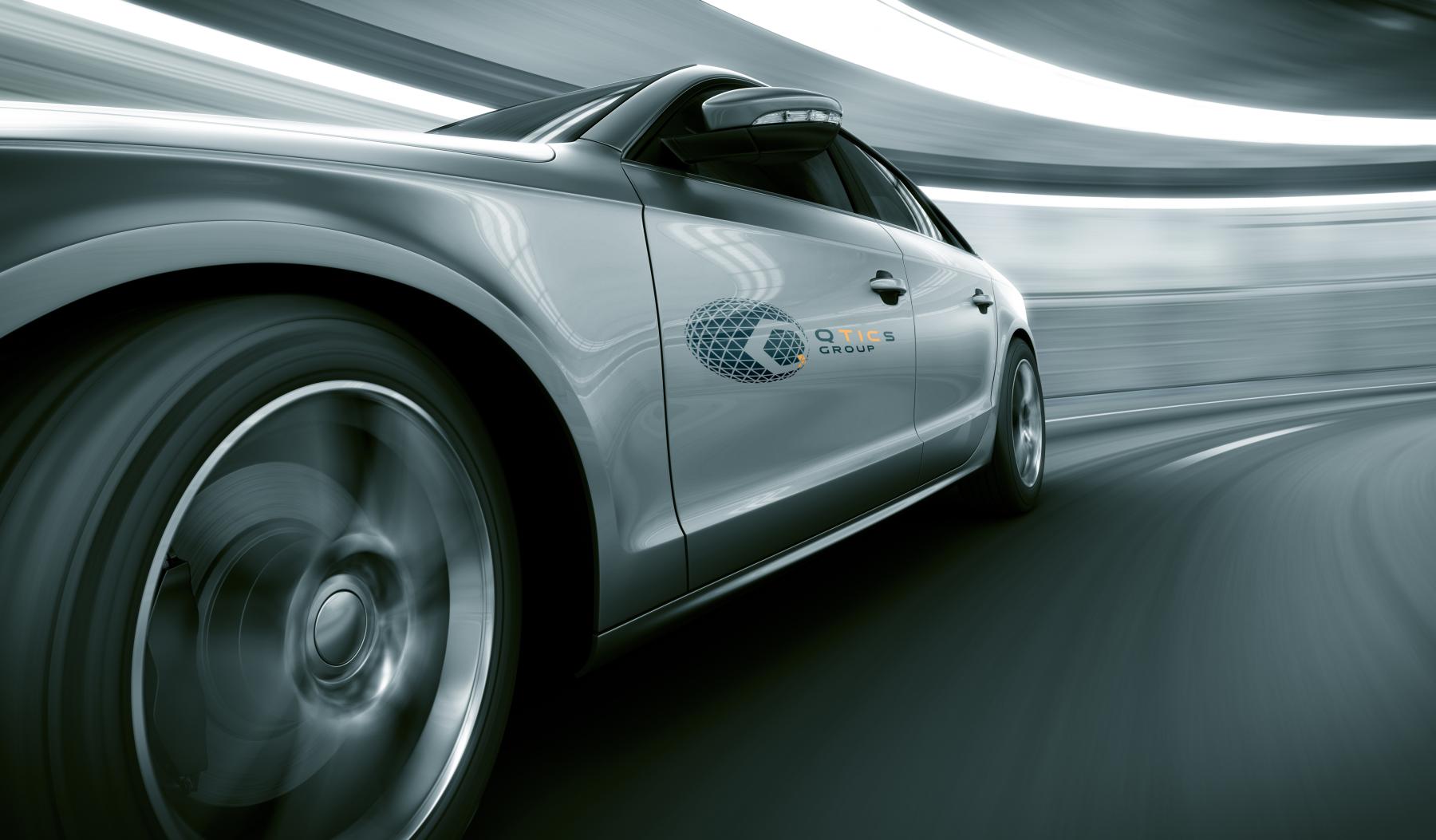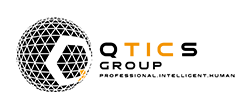With a career marked by extensive travel and international business development, Péter's arrival at QTICS signals an infusion of expertise and global perspective. His transition reflects a commitment to elevating industry standards, leveraging his diverse background to bring a fresh approach to conformity assessment practices.
Péter Mátyus graduated as a mechanical engineer in ’98 at the University of Miskolc, majoring in quality assurance as well as ceramics and composites. Immediately drawn to Budapest, he was the first in his class to find a job in the capital.
After a year and a half as a trainee quality assurance engineer at Thomas & Betts, from Delphi, an American company, Péter received his first job offer: a greenfield project moving to Balassagyarmat was recruiting young English-speaking engineers. The company, which produced compressors for air-conditioning systems, was considered as a priority investment at the time.
“We then moved to the North of France with a group of 15 for the orientation program near Lille to a city called Douai, to learn the tricks of the trade. The Hungarian plant was a copy of the French one, with all the modernization you can imagine. My job was to localize the supply chain in Europe, as close as possible to the new Balassagyarmat plant.“
From light switches to airspace
“We started looking for companies in Eastern Europe that were suitable suppliers.
Delphi spent a lot of time training young people like us, so we flew regularly to visit the suppliers and get trained for example in the HQ of Delphi, in Athens, Michigan. While adventurous, it was tiring to get home on a Friday and be back at work by Monday. In those first four years, travel became a part of my life, but after a while even the commute between Budapest and Balassagyarmat felt too much. I changed three cars in those four years”, he recalls. While he was started to think of a new job, a colleague referred Péter to Eaton Corporation, which was growing through business acquisitions in Europe at the time.
“They were looking for flexible people because they had just acquired the British household electronics company Honeywell. They wanted to move their production lines east from the UK to maintain its’ profitability, while retaining their core business manufacturing light switches tailored to the UK market, an activity they relocated to Videoton in Hungary.
Coordinating this process helped to kickstart my career”, says Péter, whose managers saw potential in him after the 1.5-year project, and he was moved through all four of their divisions: electrical, hydraulics, automotive and aerospace.
“One of the most exciting was the aerospace industry: I saw through the process of equipping the Turkish army with F16 fighter jets. Connected to this, a large offset program has started and being part of it, Eaton dedicated a team of engineers to Turkey to find a suitable companies in the aerospace and defense industry. “I was one of that team, for a long time the only one”
In 2006, Péter had to travel every week: he would fly to Istanbul on Sunday, then to Ankara the same day, and then started to audit Turkish defense companies around Ankara on Monday morning.
“This went on for about a year: I visited missile and helicopter factories, some with machines bigger than our office. I have also made a lot of Turkish friends and government contacts. Before each visit, I was frisked and had to sign papers, half of which I did not understand. But I had nothing to hide either way. All in all, it was an exciting time, and I can thank a lot to my ex-boss there, he was my mentor, Les Ball”, he says.
A one-man-office at BMW
In Péter’s next and longest-held position, a childhood dream came true. In 2007, BMW opened an engineering office in Budapest to develop an Eastern European base. A former colleague recommended Péter, who immediately won over his German boss, joining BMW Hungary on January 1st, 2008, as a supplier developer at the Vecsés office. Soon, the 2008 credit crunch hit, forcing BMW to cut costs by closing the so-called exotic offices, including Budapest.
“My colleague found another job within two weeks, and my German boss left. But I had nowhere to rush. I sat in the office, answering emails on my own. The inquiries from Germany kept coming in because many people did not even realize that the office had closed.
In July, the management offered me the same position in Munich, and I became a German employee in September 2009. The autonomy I had developed in Hungary continued over in Germany”, Péter says.
In his almost 14 years at BMW, he has always been in the business of sourcing direct materials that built directly into the car. He traveled to companies in Eastern Europe to buy raw hides from Sarajevo or to visit a plastic injection molding plant in Czech Republic.
“We looked for opportunities in the former socialist countries. When we found one, we took a business package there as soon as possible and started to develop the company further”, Péter says, adding that despite foreign sourcing, BMW has remained a quintessentially German brand, with over 50 out of 100 parts still manufactured in Germany.
A new beginning at QTICS
“The turning point came at the end of 2020, during the pandemic. We were already living at home while I commuted regularly between Munich and Budapest. My wife asked me how long this would go on, as there was still a lot of uncertainty. The German management offered to move us out to Munich. The second option was to leave everything as it was, and the third was to resign from BMW. I thought this was a good time to reshuffle the deck.”

After six months of negotiations with BMW, Péter eventually left the company in February 2021.
“I set up the company Mátyus Consulting Ltd. and worked as a consultant for the engineering firm P3 Group, based in Stuttgart. As a former BMW employee, I knew my way around the Eastern European market.
Then came the Korean and Chinese customers in the battery industry, such as Samsung and SungEel, CATL, EVE and Sunwoda, who just started evaluating the Eastern European region. We spent two years traveling and negotiating with Polish, Slovakian, and Hungarian governments. This is how Chinese battery manufacturer company EVE and Sunwoda arrived in Hungary, now investing at various locations, while South Korean SK opened its new battery plant in Iváncsa.
Due to my relatively nationalist mindset, I usually preferred Hungarian suppliers to others in the region, trying to help HIPA (the Hungarian Investment Promotion Agency) as much as I could. I also tried my hand at renewable energy companies as a business developer, which gave me a sense of success to prove I could move beyond the automotive industry.”
By joining QTICS on January 1st this year, Péter brought a fresh eye from the business development perspective, while his colleagues are well-versed with the industry standards. Thus, the two sides complement each other.
“At the end of 2023, András Szabó, the CEO of QTICS Automotive Ltd. reached out to me about setting up an automotive division. Despite my qualifications, quality standards have not been my focus until now.
At QTICS, I encountered several intriguing issues, such as legislation or future EU regulations to educate clients about. In return, I highlighted that investments in the region also offer opportunities for us, for instance, in terms of the quality assurance of products from third-world country companies.
I have never worked for a Hungarian-owned company before. I missed having a community with whom I could chat in my mother tongue about everyday things. I get on with everyone here, young or older.
As you know by now, my work-related contacts have been abroad. No matter how well you speak foreign languages, it is not the same as sharing your thoughts with someone in your mother tongue.
I can honestly say that QTICS has been a great learning curve so far. It was a challenge to start something new with this knowledge base and network of contacts. It took courage, but now I'm glad I stuck with it.”
Contact: peter.matyus@qtics.group
